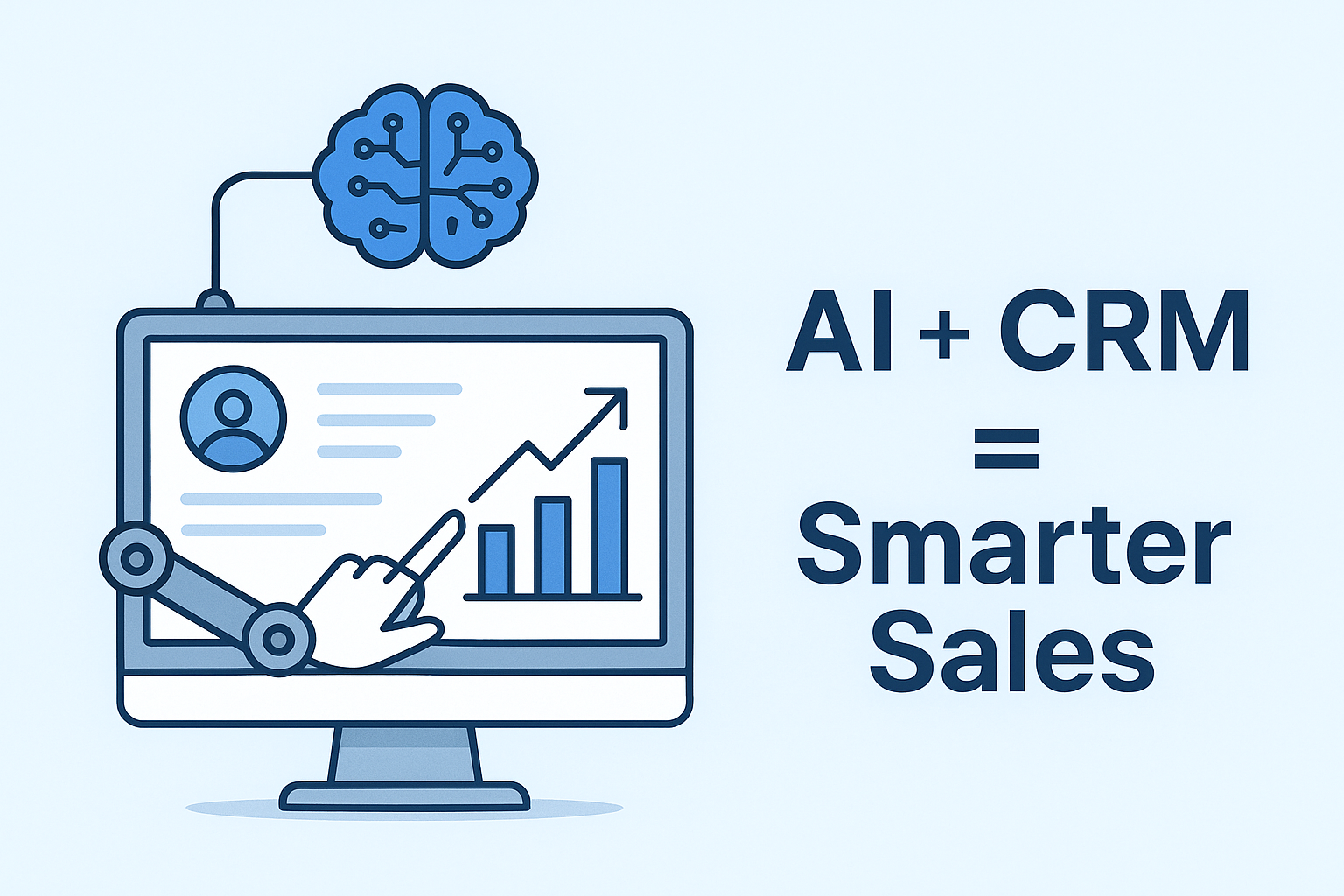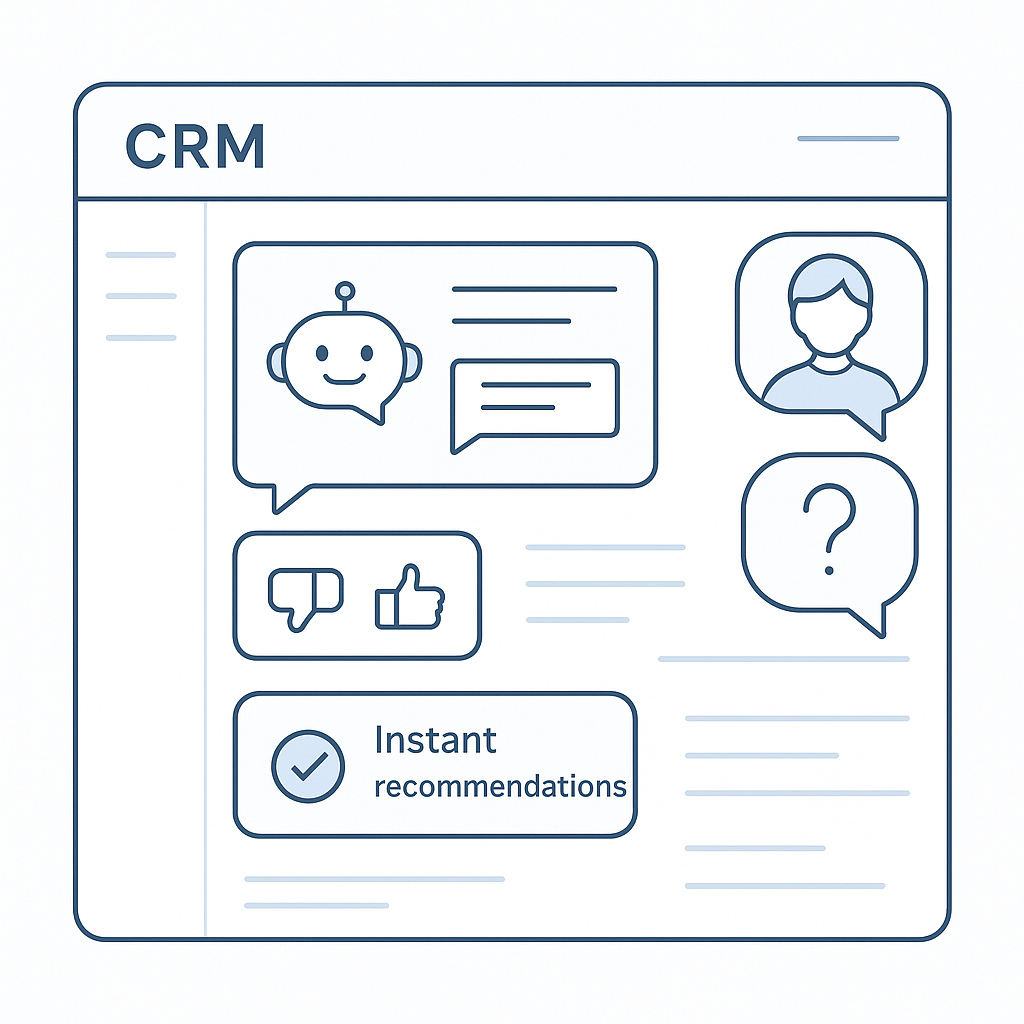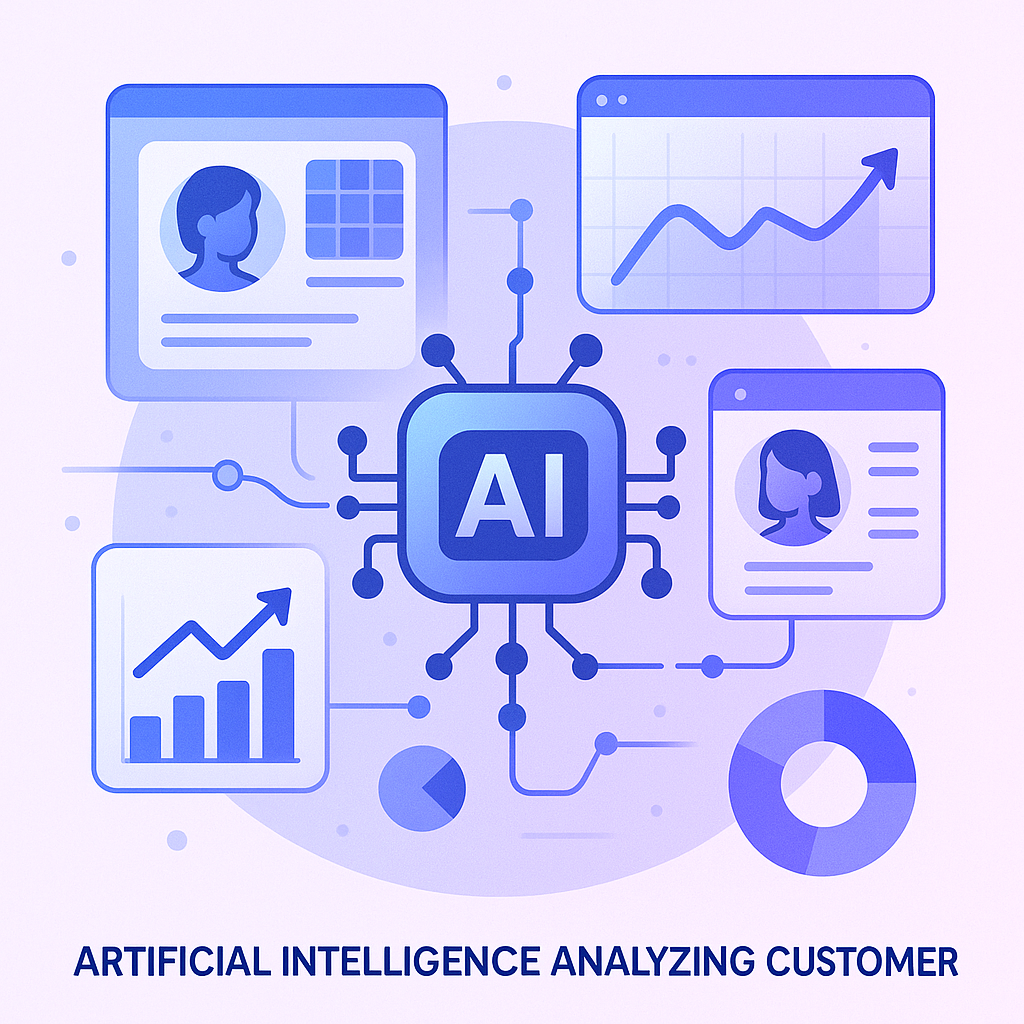June 23, 2025
•By Anix AI Team
•AI in CRM
AI Integration with CRM Systems: Smarter Customer Insights, Faster Sales

In today’s fast-paced digital world, customer expectations are constantly rising. To stay ahead, businesses must offer personalized experiences and quick responses while maintaining operational efficiency. One of the most powerful ways to achieve this is through the integration of Artificial Intelligence (AI) with Customer Relationship Management (CRM) systems. This combination is helping businesses gain smarter customer insights and drive faster, more informed sales decisions.
What Is a CRM System?
A CRM system is a tool that helps businesses manage their interactions with customers and potential customers. It stores customer information, tracks interactions, and manages sales pipelines. Popular CRM tools like Salesforce, HubSpot, and Zoho CRM are used by companies worldwide to improve customer service and streamline operations.
CRM systems were traditionally used to keep records and organize customer data. But with the integration of AI, they are now evolving into intelligent systems that not only record data but also analyze it to generate actionable insights.
Why AI Integration Is the Next Step
AI integration takes the traditional CRM system a step further. Instead of just storing and organizing customer data, AI-powered CRMs can predict behavior, automate responses, suggest next actions, and even score leads based on their likelihood to convert. This helps teams work smarter, not harder.
Businesses that adopt AI-powered CRM solutions are seeing measurable improvements in customer satisfaction, lead conversion, and overall productivity. In fact, according to a Salesforce report, AI is expected to increase business productivity by up to 40% in the coming years.

Smarter Customer Insights Through AI
One of the key benefits of AI in CRM is the ability to gain deeper customer insights. By analyzing past interactions, purchase history, browsing behavior, and preferences, AI can help identify patterns that are not easily visible to human eyes.
For example, AI can help a sales team understand which product a customer is likely to be interested in next or when a customer might be ready to make a purchase. This predictive power allows businesses to make timely and relevant offers, increasing the chance of a successful sale.
Real-Time Data Analysis
Traditional CRMs depend on manual input and analysis. With AI, real-time data analysis becomes possible. AI can process large volumes of data instantly and offer suggestions or alerts in real time.
For instance, if a customer raises a complaint on social media, an AI-integrated CRM can detect the sentiment, alert the customer support team, and even recommend a suitable response. This speed of response builds trust and enhances customer experience.
Lead Scoring and Prioritization
Not all leads are equal. Some are ready to buy, while others are just browsing. AI can help sales teams focus on the most promising leads by assigning scores based on behavior, engagement, and demographic data.
By using AI-based lead scoring, your sales team saves time and increases conversion rates. This targeted approach ensures that your efforts are directed towards leads that are most likely to turn into paying customers.
Sales Forecasting and Strategy Planning
Accurate forecasting is crucial for setting realistic goals and allocating resources effectively. AI can analyze past sales data, market trends, and customer behavior to predict future sales with a high degree of accuracy.
This helps business leaders make strategic decisions such as when to launch a campaign, how to price a product, or where to focus their efforts. With better forecasts, you can reduce risks and improve planning.
Personalized Customer Experience
Personalization is no longer optional—it’s expected. AI-powered CRMs can personalize communication across emails, chatbots, social media, and websites.
For example, AI can suggest personalized product recommendations or send automated birthday greetings with special offers. These small touches help build loyalty and improve customer satisfaction.
Automation of Routine Tasks
AI integration reduces the need for manual, repetitive tasks. From sending follow-up emails to scheduling meetings and updating contact records, AI can handle these operations efficiently.
This frees up your sales and support teams to focus on more strategic tasks like relationship building and problem-solving, ultimately leading to faster sales and better service.

Intelligent Chatbots and Virtual Assistants
AI-powered chatbots are now an essential part of CRM systems. They can answer customer queries, collect feedback, book appointments, and even help in making purchases—all in real-time.
Virtual assistants integrated into CRMs can also support your sales team by preparing meeting summaries, generating customer reports, and suggesting next steps in the sales cycle.
Better Customer Retention and Loyalty
AI can help you identify customers who are likely to leave by analyzing their behavior and engagement levels. This allows you to take preventive actions such as offering discounts, providing additional support, or re-engaging them through personalized campaigns.
By maintaining a close connection with your customers and responding to their needs proactively, AI-integrated CRMs can boost retention rates and increase lifetime customer value.
Seamless Integration with Other Tools
Modern AI-powered CRM platforms are built to integrate with other tools like email platforms, e-commerce stores, analytics dashboards, and marketing automation tools. This ensures a seamless flow of information and enhances the efficiency of business processes.
With integrated systems, your team can get a 360-degree view of the customer, enabling better decision-making and consistent communication.
Challenges to Consider
While AI integration offers numerous benefits, it also comes with challenges such as data privacy concerns, the need for clean and structured data, and training requirements for staff.
It is important to choose a CRM platform that complies with data protection laws and offers user-friendly AI features. Investing in training and change management will also help your team adapt more easily to the new system.
Future of AI in CRM
As AI continues to evolve, CRM systems will become even more intelligent. Features like voice recognition, emotion analysis, and deeper predictive analytics will become common. Businesses that embrace this transformation will be better equipped to deliver exceptional customer experiences and achieve long-term growth.
Final Thoughts

AI integration with CRM systems is no longer a luxury—it’s a necessity in today’s customer-centric world. By combining the power of data, automation, and machine learning, businesses can gain smarter customer insights and accelerate their sales cycles.
Whether you’re a small business or a large enterprise, adopting an AI-enabled CRM can significantly boost your competitive advantage. The future of customer relationship management lies in intelligent, proactive, and personalized interactions—and AI is the key to unlocking it.